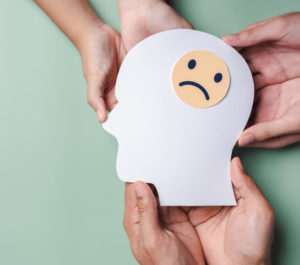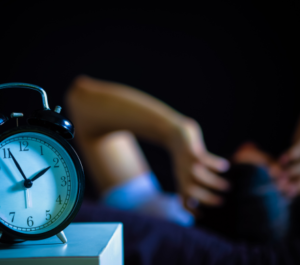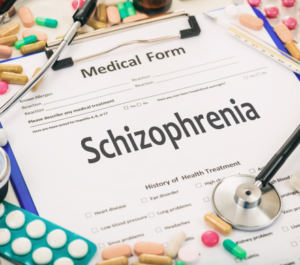
Clinical Psychology Service

We create best program for you
Depression
 Depression (major depressive disorder) is a common and serious medical illness that negatively affects how you feel, the way you think and how you act. Fortunately, it is also treatable. Depression causes feelings of sadness and/or a loss of interest in activities you once enjoyed. It can lead to a variety of emotional and physical problems and can decrease your ability to function at work and at home.
Depression (major depressive disorder) is a common and serious medical illness that negatively affects how you feel, the way you think and how you act. Fortunately, it is also treatable. Depression causes feelings of sadness and/or a loss of interest in activities you once enjoyed. It can lead to a variety of emotional and physical problems and can decrease your ability to function at work and at home.
Depression symptoms can vary from mild to severe and can include:
- Feeling sad or having a depressed mood
- Loss of interest or pleasure in activities once enjoyed
- Changes in appetite — weight loss or gain unrelated to dieting
- Trouble sleeping or sleeping too much
- Loss of energy or increased fatigue
- Increase in purposeless physical activity (e.g., inability to sit still, pacing, handwringing) or slowed movements or speech (these actions must be severe enough to be observable by others)
- Feeling worthless or guilty
- Difficulty thinking, concentrating or making decisions
- Thoughts of death or suicide
Mood disorders
Anxiety disorders
 Mood disorders are characterized by a serious change in mood that cause disruption to life activities. Though many different subtypes are recognized, three major states of mood disorders exist: depressive, manic, and bipolar. Major depressive disorder is characterized by overall depressed mood. Elevated moods are characterized by mania or hypomania. The cycling between both depressed and manic moods is characteristic of bipolar mood disorders. In addition to type and subtype of mood, these disorders also vary in intensity and severity. For example, dysthymic disorder is a lesser form of major depression and cyclothymic disorder is recognized as a similar, but less severe form of bipolar disorder.
Mood disorders are characterized by a serious change in mood that cause disruption to life activities. Though many different subtypes are recognized, three major states of mood disorders exist: depressive, manic, and bipolar. Major depressive disorder is characterized by overall depressed mood. Elevated moods are characterized by mania or hypomania. The cycling between both depressed and manic moods is characteristic of bipolar mood disorders. In addition to type and subtype of mood, these disorders also vary in intensity and severity. For example, dysthymic disorder is a lesser form of major depression and cyclothymic disorder is recognized as a similar, but less severe form of bipolar disorder.
Anxiety disorders
 Anxiety disorders are a cluster of mental disorders characterized by significant and uncontrollable feelings of anxiety and fear such that a person’s social, occupational, and personal function are significantly impaired. Anxiety may cause physical and cognitive symptoms, such as restlessness, irritability, easy fatiguability, difficulty concentrating, increased heart rate, chest pain, abdominal pain, and a variety of other symptoms that may vary based on the individual.
Anxiety disorders are a cluster of mental disorders characterized by significant and uncontrollable feelings of anxiety and fear such that a person’s social, occupational, and personal function are significantly impaired. Anxiety may cause physical and cognitive symptoms, such as restlessness, irritability, easy fatiguability, difficulty concentrating, increased heart rate, chest pain, abdominal pain, and a variety of other symptoms that may vary based on the individual.
There are several types of anxiety disorders, including generalized anxiety disorder, illness anxiety disorder, specific phobia, social anxiety disorder, separation anxiety disorder, agoraphobia, panic disorder, and selective mutism.
Dissociative disorders
Personality disorders
 Dissociative disorders are conditions that involve disruptions or breakdowns of memory, awareness, identity, or perception. People with dissociative disorders use dissociation as a defense mechanism, pathologically and involuntarily. The individual experiences these dissociations to protect themselves. Some dissociative disorders are triggered by psychological trauma, but depersonalization-derealization disorder may be preceded only by stress, psychoactive substances, or no identifiable trigger at all.
Dissociative disorders are conditions that involve disruptions or breakdowns of memory, awareness, identity, or perception. People with dissociative disorders use dissociation as a defense mechanism, pathologically and involuntarily. The individual experiences these dissociations to protect themselves. Some dissociative disorders are triggered by psychological trauma, but depersonalization-derealization disorder may be preceded only by stress, psychoactive substances, or no identifiable trigger at all.
Personality disorders
 Personality disorders (PD) are a class of mental disorders characterized by enduring maladaptive patterns of behavior, cognition, and inner experience, exhibited across many contexts and deviating from those accepted by the individual’s culture. These patterns develop early, are inflexible, and are associated with significant distress or disability. The definitions vary by source and remain a matter of controversy. Official criteria for diagnosing personality disorders are listed in the sixth chapter of the International Classification of Diseases (ICD) and in the American Psychiatric Association’s Diagnostic and Statistical Manual of Mental Disorders (DSM).
Personality disorders (PD) are a class of mental disorders characterized by enduring maladaptive patterns of behavior, cognition, and inner experience, exhibited across many contexts and deviating from those accepted by the individual’s culture. These patterns develop early, are inflexible, and are associated with significant distress or disability. The definitions vary by source and remain a matter of controversy. Official criteria for diagnosing personality disorders are listed in the sixth chapter of the International Classification of Diseases (ICD) and in the American Psychiatric Association’s Diagnostic and Statistical Manual of Mental Disorders (DSM).
Somatoform disorder
 In people who have been diagnosed with a somatic symptom disorder, medical test results are either normal or do not explain the person’s symptoms (medically unexplained physical symptoms), and history and physical examination do not indicate the presence of a known medical condition that could cause them, though the DSM-5 cautions that this alone is not sufficient for diagnosis The patient must also be excessively worried about their symptoms, and this worry must be judged to be out of proportion to the severity of the physical complaints themselves. A diagnosis of somatic symptom disorder requires that the subject have recurring somatic complaints for at least six month.
In people who have been diagnosed with a somatic symptom disorder, medical test results are either normal or do not explain the person’s symptoms (medically unexplained physical symptoms), and history and physical examination do not indicate the presence of a known medical condition that could cause them, though the DSM-5 cautions that this alone is not sufficient for diagnosis The patient must also be excessively worried about their symptoms, and this worry must be judged to be out of proportion to the severity of the physical complaints themselves. A diagnosis of somatic symptom disorder requires that the subject have recurring somatic complaints for at least six month.
Symptoms are sometimes similar to those of other illnesses and may last for years. Usually, the symptoms begin appearing during adolescence, and patients are diagnosed before the age of 30 years.Symptoms may occur across cultures and gender.Other common symptoms include anxiety and depression.
Schizophrenia
Substance abuse
 About 0.3% to 0.7% of people are diagnosed with schizophrenia during their lifetime.In 2017, there were an estimated 1.1 million new cases and in 2022 a total of 24 million cases globally. Males are more often affected and on average have an earlier onset.The causes of schizophrenia may include genetic and environmental factors.Genetic factors include a variety of common and rare genetic variants.Possible environmental factors include being raised in a city, childhood adversity, cannabis use during adolescence, infections, the ages of a person’s mother or father, and poor nutrition during pregnancy.
About 0.3% to 0.7% of people are diagnosed with schizophrenia during their lifetime.In 2017, there were an estimated 1.1 million new cases and in 2022 a total of 24 million cases globally. Males are more often affected and on average have an earlier onset.The causes of schizophrenia may include genetic and environmental factors.Genetic factors include a variety of common and rare genetic variants.Possible environmental factors include being raised in a city, childhood adversity, cannabis use during adolescence, infections, the ages of a person’s mother or father, and poor nutrition during pregnancy.
Substance abuse
 Substance abuse, also known as drug abuse, is the use of a drug in amounts or by methods that are harmful to the individual or others. It is a form of substance-related disorder. Differing definitions of drug abuse are used in public health, medical, and criminal justice contexts. In some cases, criminal or anti-social behavior occurs when the person is under the influence of a drug, and long-term personality changes in individuals may also occur. In addition to possible physical, social, and psychological harm, the use of some drugs may also lead to criminal penalties, although these vary widely depending on the local jurisdiction.
Substance abuse, also known as drug abuse, is the use of a drug in amounts or by methods that are harmful to the individual or others. It is a form of substance-related disorder. Differing definitions of drug abuse are used in public health, medical, and criminal justice contexts. In some cases, criminal or anti-social behavior occurs when the person is under the influence of a drug, and long-term personality changes in individuals may also occur. In addition to possible physical, social, and psychological harm, the use of some drugs may also lead to criminal penalties, although these vary widely depending on the local jurisdiction.

For Enquiry
Join Us Our Training Program

Make an appointment

Call for active now
+91 8167085707

Send us a mail
info@desidiets.co.in

Our location
D-201 Loharuka Green Heights Rajarhat Main Road Kolkata 700135
Review
There are no reviews yet. Be the first one to write one.

